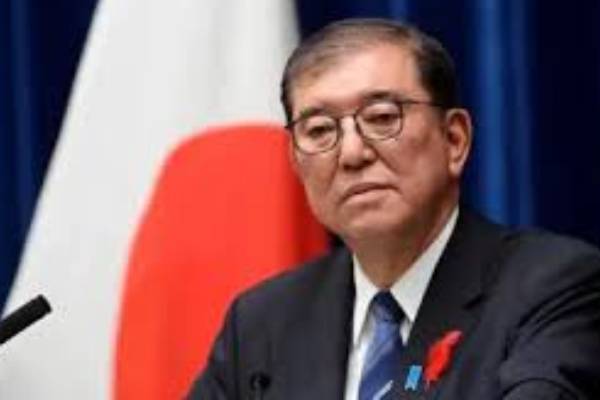Japan’s ruling coalition has lost its majority in the upper house of parliament, dealing a major blow to Prime Minister Shigeru Ishiba and fuelling speculation over his political future.
Sunday’s election saw the coalition of the Liberal Democratic Party (LDP) and its junior partner Komeito secure just 47 seats—three short of the 50 needed to retain control of the 248-seat chamber. Half of the seats were up for grabs, with members elected to six-year terms.
Speaking after the polls closed, Prime Minister Ishiba admitted to a “harsh result” and said he accepted it “solemnly”, but insisted he had no plans to resign. “My focus remains on trade negotiations,” he stated.
The LDP had already lost its grip on the more powerful lower house last year. This latest defeat significantly weakens the coalition’s legislative influence and has prompted renewed debate within the party over leadership.
The main opposition, the Constitutional Democratic Party, came second with 22 seats.
Observers say voter frustration over a worsening cost-of-living crisis, rising rice prices, political scandals, and concerns about US trade tariffs contributed to the ruling bloc’s poor performance. Analysts also noted growing dissatisfaction with Ishiba’s leadership style.
Jeffrey Hall, a lecturer in Japanese Studies at Kanda University of International Studies, said support for right-wing parties such as Sanseito had cut into the LDP’s traditional conservative base.
The Sanseito party, led by Sohei Kamiya, gained 14 seats on Sunday, up from just one in the previous election. Known for its nationalist “Japanese First” agenda and controversial statements, Sanseito gained traction during the pandemic through social media, spreading conspiracy theories and anti-foreign sentiment.
Mr Hall warned that the party’s presence in the upper house may introduce “conspiracy theories, anti-foreign statements, and strong revisionist views about history” into mainstream political discourse.
While Ishiba’s party has governed almost continuously since 1955, changes in leadership have been frequent. The last three LDP prime ministers who lost the upper house majority resigned within two months, and several prominent figures are now being tipped as possible successors.
Among them are Sanae Takaichi, who finished second in last year’s leadership race; former economic security minister Takayuki Kobayashi; and Shinjiro Koizumi, son of former Prime Minister Junichiro Koizumi.
Any leadership contest would likely trigger political uncertainty, particularly as Japan navigates delicate trade talks with the United States.
Despite the political shock, financial markets remained calm. The Tokyo Stock Exchange was closed on Monday for a public holiday, but the yen gained ground against other major currencies as investors had already priced in the coalition’s loss.
Meanwhile, Prime Minister Ishiba last week announced a task force to address public concerns over “crimes or nuisance behaviours committed by some foreign nationals”, amid growing debate over immigration, land ownership, and social security.
Japan has seen a sharp rise in foreign residents and tourists in recent years, fuelling tensions over prices and cultural integration in a country known for its isolationist tendencies.





